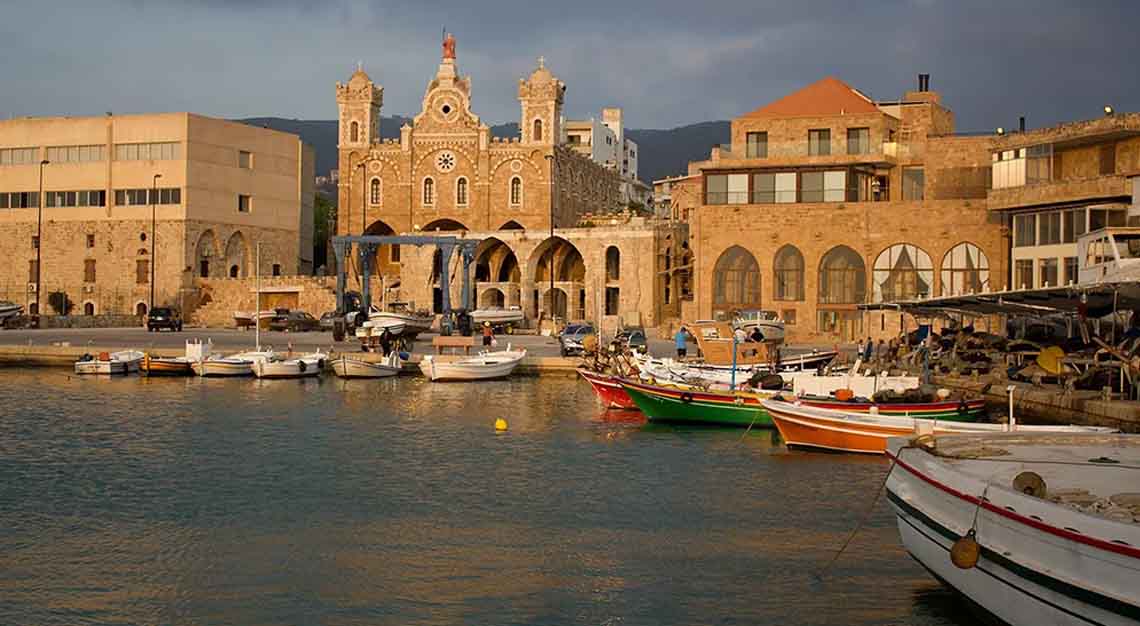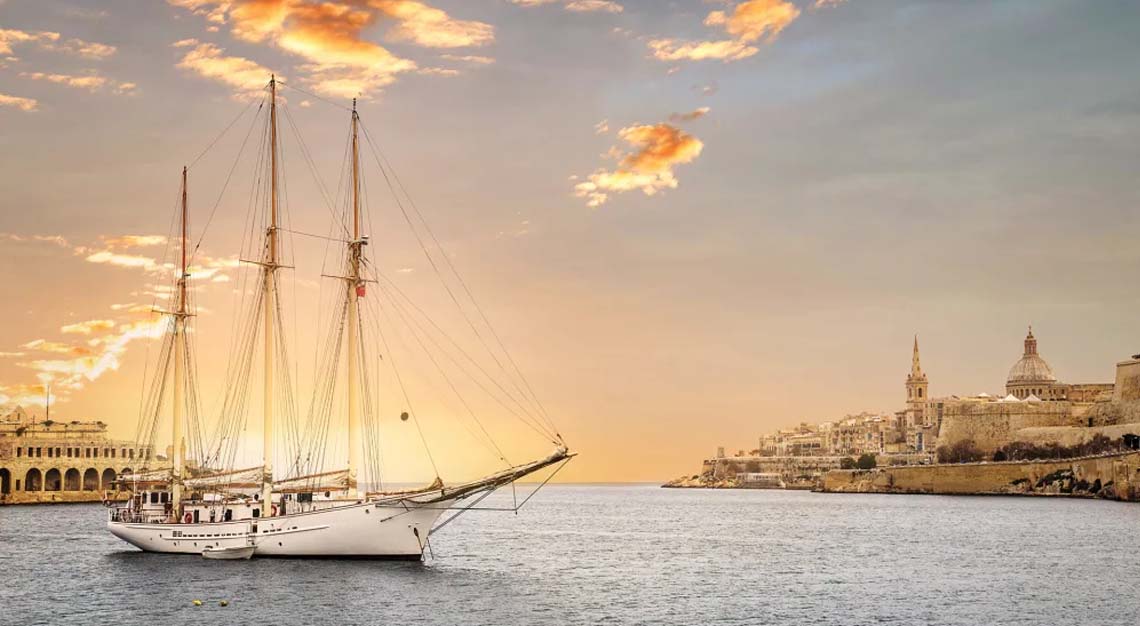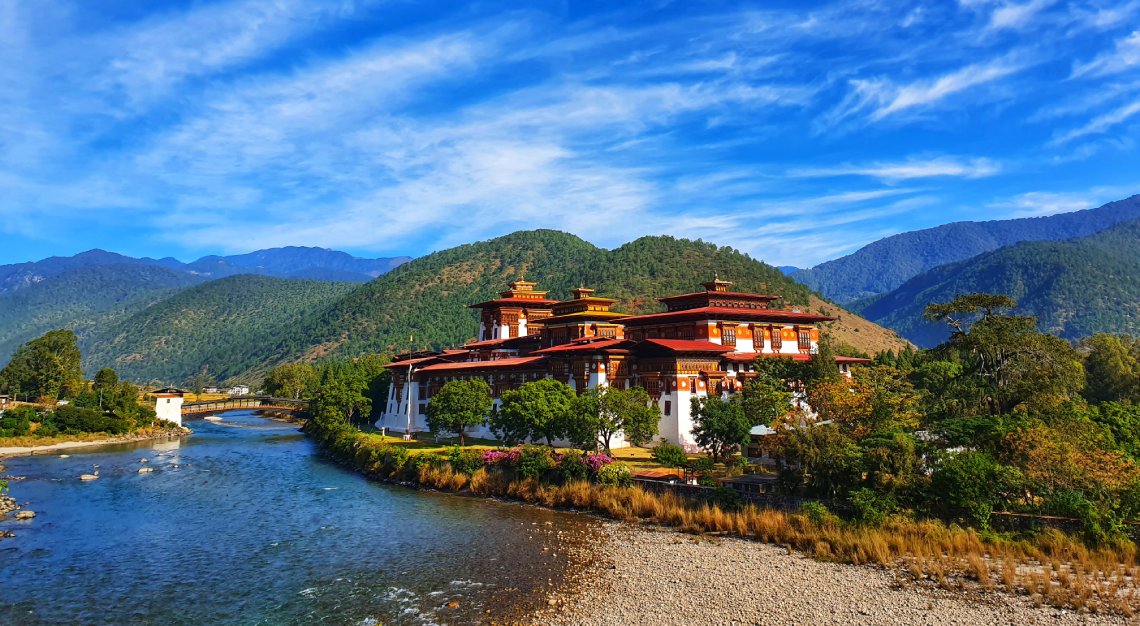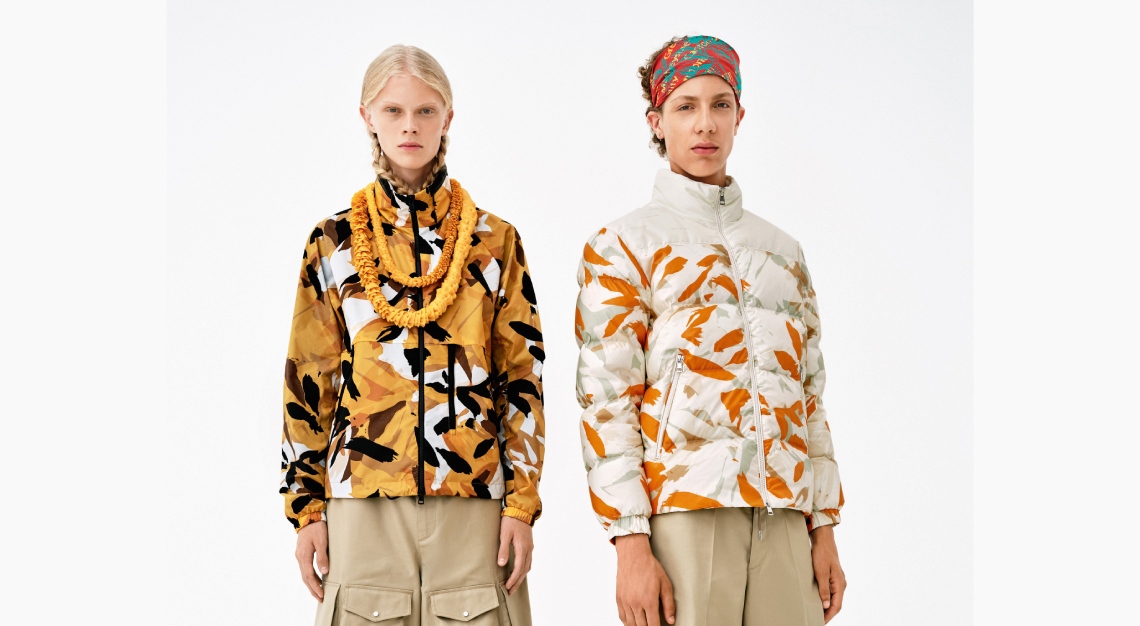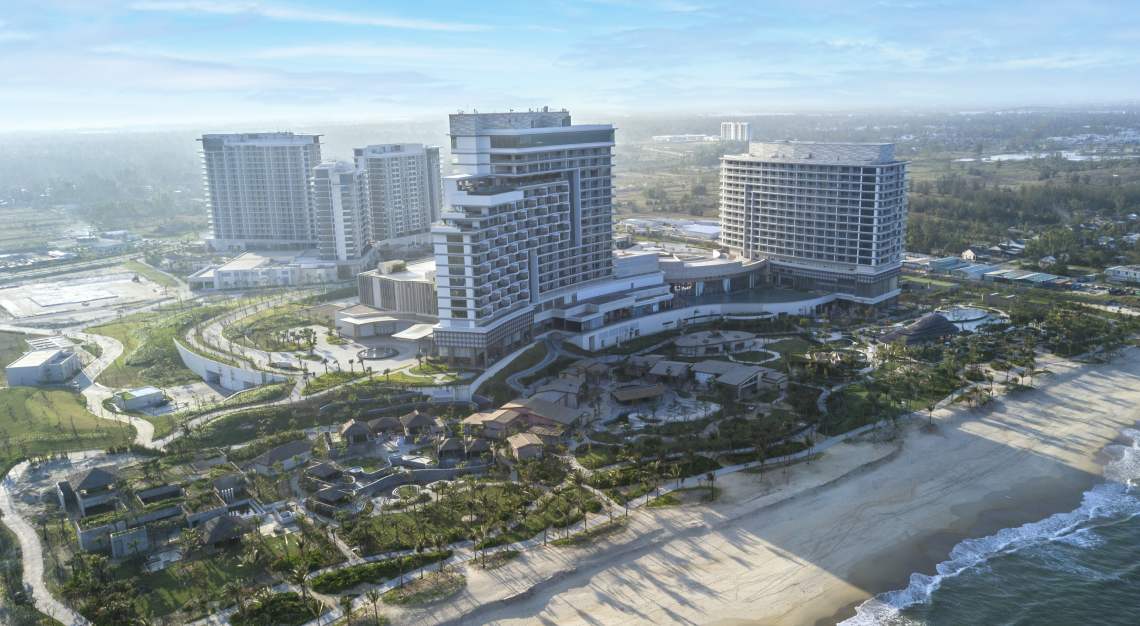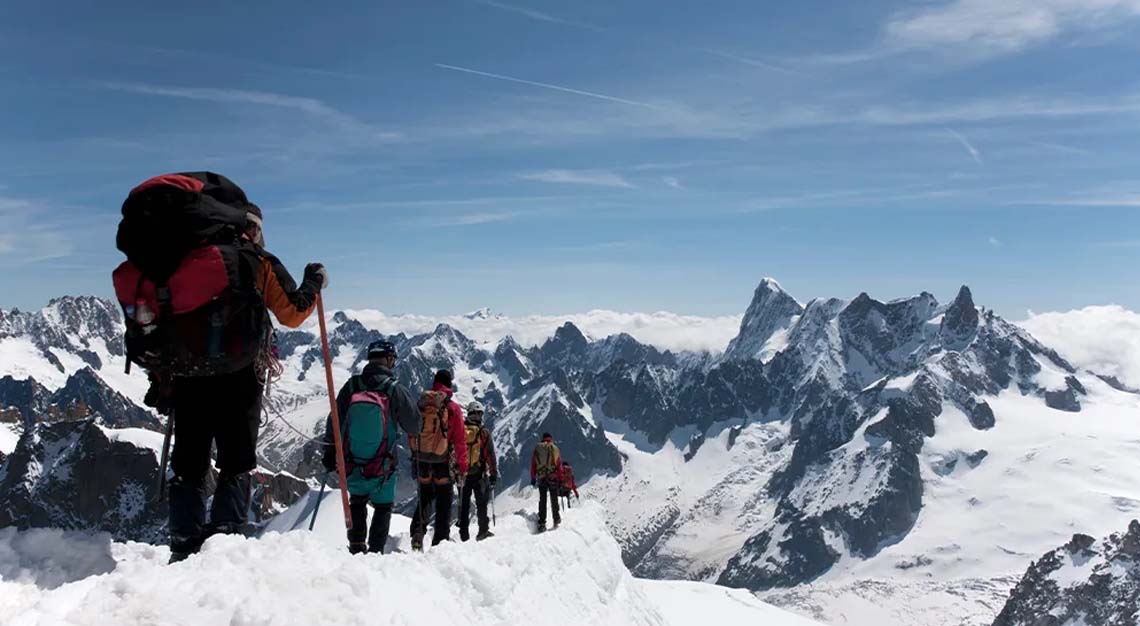The secret is out: Batroun, a once quiet escape on the coast of Lebanon, is swelling from huge injections of capital and buzzy hotels
Millionaires bought up this quiet fishing town, and now it’s a hot Mediterranean destination.
For as long as anyone can remember, Batroun, a well-preserved old town in northern Lebanon, was a humble, under-the-radar gateway for locals. It was best known for its ancient Phoenician wall, Ottoman architecture, and sleepy cobblestoned streets. But like some other places across the globe, the pandemic changed everything for this 4,000-year-old fishing village looking out towards Cyprus on the Mediterranean.
In 2021, clandestine beach parties hidden behind weathered wooden gates attracted Lebanon movers and shakers, eager to escape strict rules and evening curfews in the capital city of Beirut. The secret was out.
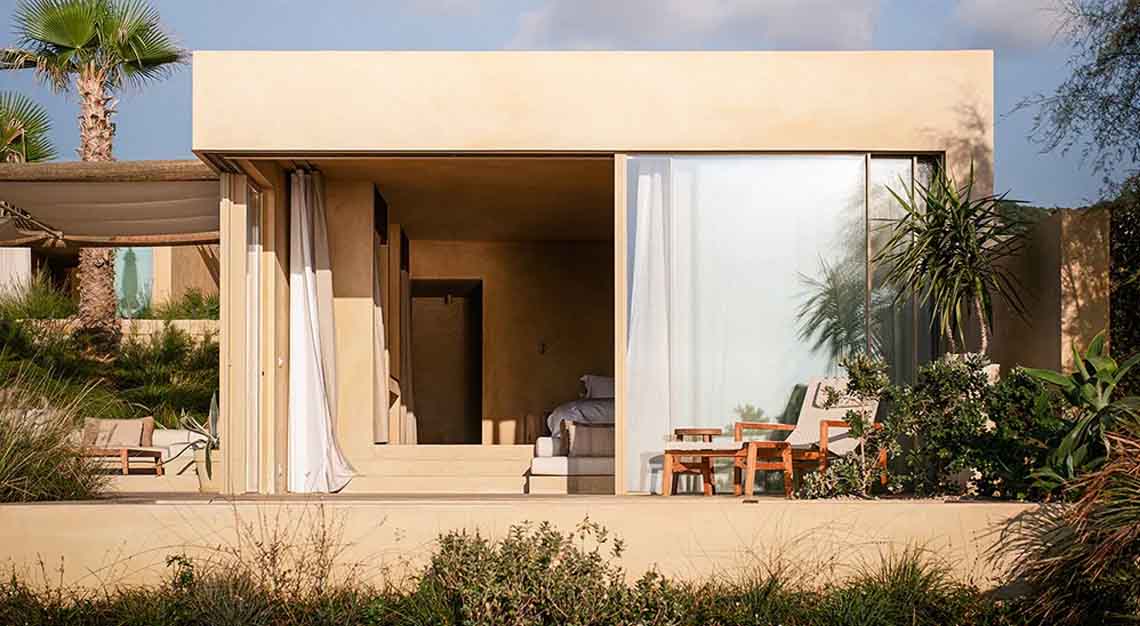
Since then, a surge in development is transforming Batroun into a lavishly appointed playground for an international A-list. As wealthy Covid-era visitors turned into investors, prime seafront land and centuries-old family homes have become luxury boutique hotels, trendy rooftop restaurants, and buzzy beach clubs reminiscent of Mykonos or Ibiza. For more blink-and-you’re-in-Greece moments, head out to the town’s nearby vineyards. Located at high altitudes of up to 1,300 metres above sea level, they produce high-quality grapes that fuel meals back in town.
In contrast with the rest of the country, which recently suffered one of the worst economic meltdowns in modern history, Batroun is a thriving pocket of success and carefree calm. (Editor’s note: As of writing, the Israel-Hamas war continues south of Lebanon’s border, while neighbouring Syria’s civil conflict is ongoing. Any travellers to the region should proceed with caution.)
Its transformation has been helped along by controversial Lebanese politician Gebran Bassil, a polarising figure who is either responsible for preserving the town amid the collapse or is one of the chief architects of the country’s downfall, depending on who you ask. He has enabled and encouraged large investments in the area, which some see as a land grab. Entrepreneurs see it differently.
At the top of the list of new and notable properties is Capo Boutique Hotel and Resort. Designed by rock-star-turned-architect Carl Gerges, a multi-talented drummer from the Middle Eastern band Mashrouh’ Leila, the sand and cement architecture almost disappears into the landscape. A portal-like entrance, lined with statuesque cacti and swaying white canopies, takes you inside a hedonistic haven of understated luxury.
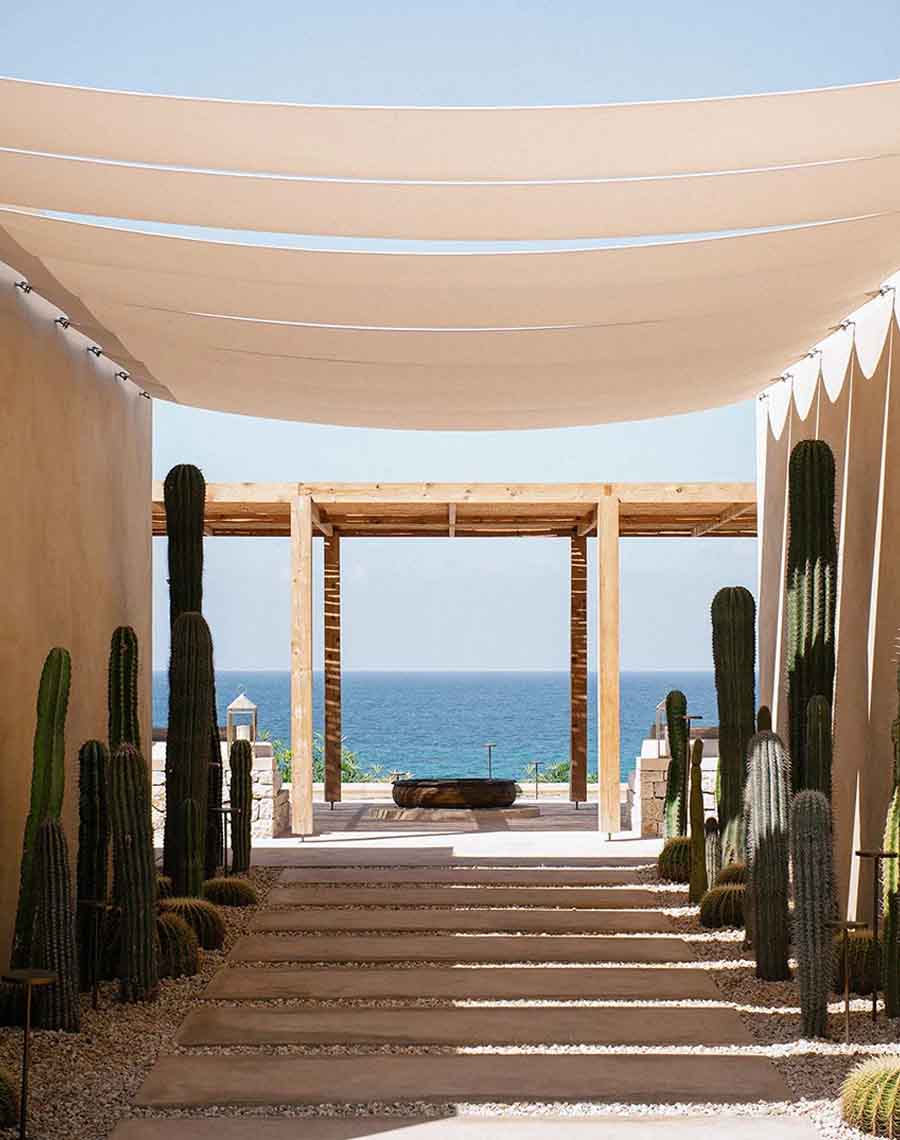
Each of Capo’s eight suites has its own lap pool, an exceptionally private terrace, colossal sliding doors, and expansive views onto the Mediterranean. Free of any extraneous details or distracting decor, it’s the epitome of quiet luxury.
Built over five levels, the resort has a spa specialising in Balinese treatments and a sunset bar that welcomes international DJs throughout the summer months, with individual tables selling for as much as US$4,000 for the evening. Capo’s fine dining restaurant, Butler’s Table, fitted with custom glass lighting and a lengthy koi pond, is helmed by acclaimed chef Youssef Akiki. His former eatery, Burgundy, was listed in the Best 50 Discovery for restaurants in the world, and one of the 20 most underrated restaurants in the world by CNN. He is also the culinary director of Basko restaurant in Dubai.
Butler’s Beach Club, part of the small resort, is a destination on its own. You can order lunch from the restaurant and have it served at your sun lounger while enjoying the music. A short walk on the sandy beach takes you to a group of multimillion-dollar seafront villas. A few minute drive onward is Breathe Batroun, an adult-only boutique hotel that belongs to Mario Haddad, a restaurant entrepreneur whose family runs Empire Cinemas.
Set in a traditional early-twentieth-century Lebanese house with triple arch windows and a stone facade, it is thoughtfully furnished with carefully selected midcentury antiques and an honesty bar. The rooftop serves as an airy dining area, where decadent oriental breakfast is served in the morning. In the evening, mixologist cocktails and fine Japanese dishes are served under the stars as it transforms into Sushi on the Roof.
Around the corner, Fouha is the latest addition to the old town’s bustling scene. Dating back to 1850, the sandstone house used to be inhabited by five families, who each lived in one of what is now the hotel’s five suites. Furnished by top local designers and with a few vintage cinema chairs, it is run by a young local filmmaking couple who also launched Batroun’s Mediterranean Film Festival. The annual event, set in a piazza surrounded by ancient buildings, serves crispy fried sardines and local beer instead of popcorn and soda and takes place in late September.
The party never stops in Batroun.
This story was first published on Robb Report USA
